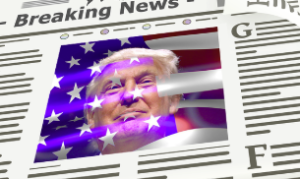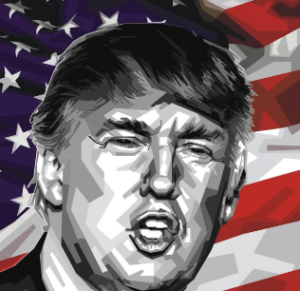$META $AAPL $BTC
#Meta #MarkZuckerberg #TechPolicy #ContentModeration #TrumpAdministration #SocialMedia #BigTech #FreeSpeech #StockMarket #PandemicResponse #Technology #PolicyMaking
Meta CEO Mark Zuckerberg has announced his intent to take an active role in shaping U.S. technology policies under the incoming administration of President-elect Donald Trump. This move signals a strategy shift by the social media giant, which has come under scrutiny from both policymakers and the public over its handling of content moderation and its influence on free speech. Zuckerberg’s efforts to align with policy directions could be a “win-win” for Meta, both in terms of fostering a collaborative relationship with the federal government and mitigating potential regulatory risks. Notably, this announcement comes as Meta continues to outperform Wall Street expectations, with the company leveraging its robust advertising business and exploring monetization strategies in the metaverse. Investors reacted positively to the news, as Meta’s stock ($META) showed slight upward movement in after-hours trading, reflecting confidence in the company’s long-term roadmap.
Zuckerberg’s willingness to collaborate on tech policies during a potentially volatile period highlights Meta’s strategic positioning in the intricate dance between innovation and regulatory oversight. This stance could echo across the tech industry, influencing similar moves from peers like $AAPL and $GOOG, both of which face their own policy battles regarding app marketplaces, data privacy, and antitrust scrutiny. Furthermore, Zuckerberg’s comments also touched upon Meta’s heightened measures during the COVID-19 pandemic, admitting that the company may have “overdid it” in terms of content crackdowns. This retrospective candor aligns with calls for transparency from major social platforms, which have faced criticism over their role in shaping public discourse, misinformation, and censorship. Such acknowledgment could serve as a foundation for rebuilding trust with users, policymakers, and investors alike.
The broader market implications are noteworthy, as Meta’s proactive approach could set the tone for shifts in regulatory dynamics under the new administration. A potential easing of punitive discourse targeted at Big Tech could elevate investor confidence in the sector, boosting not just Meta but also other major players like $MSFT and $AMZN. However, skeptics argue that the newfound interest in aligning with federal policies stems less from goodwill than from self-preservation, given the increasing calls for tighter antitrust regulations and greater scrutiny of monopolistic tendencies. Analysts are particularly watching how Meta navigates these waters while also managing innovation initiatives like the metaverse, where the competition with younger cryptocurrencies such as $BTC may further redefine the conversation around digital ownership and financial decentralization.
For markets, the dual acknowledgment of past missteps and the intention to collaborate on future policies could strengthen Meta’s long-term position. The company’s continued dominance in digital advertising and its ability to navigate complex challenges, from misinformation to regulatory overhangs, make it a symbol of resilience in Silicon Valley. Meta’s investors could see sustainability in growth, particularly if measures to refine content moderation align with public sentiment, potentially reducing future conflict with policymakers worldwide. As tech remains a critical driver of equity markets, collaborative efforts between Big Tech and the federal government may unlock fresh opportunities for long-term innovation.










Comments are closed.